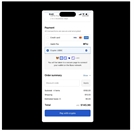
Game developer Nexon founder Kim Jung-ju, who is leading the group’s holding company NXC, is pushing ahead with the sale of NXC. The holding company selected Deutsche Bank and Morgan Stanley to supervise the sale and plans to call for preliminary bids as early as next month.
The 98.64% of NXC shares held by Kim and affiliated persons are reportedly up for sale in the market but details are not immediately known. There has been growing interest in whether subsidiaries affiliated with NXC will be sold en bloc or separately; also there is a chance that some subsidiaries may not be sold.
Slim chance of sale en bloc
NXC is divided into three segments largely: gaming (Nexon and others), lifestyle (Stokke and Bricklink) and blockchain (Cobit and Bitstamp). As each segment is heterogeneous, only global private equity funds appear capable of taking over them en bloc. Watchers say the gaming segment, in particular, may be acquired by strategic investors rather than financial ones because there are a number of gaming and IT companies with abundant liquidity around the world.
“As sellers tend to look for optimal buyers to maximize profits, NXC’s gaming segment might be up for sale after being divided physically,” said an official at a local accounting firm who is in charge of M&As.
Ordinarily, the seller carries out bloc sale and split sale simultaneously when business units with smaller synergy effects are included among those to be sold. And buyers are sought by evaluating many factors comprehensively including prices. Like in this case where the deal is expected to reach trillions of won, subsidiaries might be split to draw interests from more potential buyers.
Stokke and Bricklink are not controlled by NXC directly but there is NXMH B.V.V.A (NXMH) in the middle. NXMH, NXC’s investment arm in Europe headquartered in Belgium, acquired Bitstamp, a cryptocurrency exchange in Europe, Oct. 25.
China’s ban on cryptocurrency transactions burdens potential buyers
China’s Tencent is a frequently mentioned potential buyer when it comes to M&As in the gaming industry. A consortium, led by Tencent, has a track record of acquiring Finnish game maker Supercell for $8.6 billion in 2016. However, the Chinese government’s ban on cryptocurrency transactions is quite a burden for Chinese companies looking for M&As. Tencent, in particular, closely cooperates with the Chinese government to develop blockchain technology. In June last year, the internet-based technology company established the China Blockchain Security Alliance with the Chinese government and research institutes.
Korea’s cryptocurrency exchanges have trouble in sending money abroad under pressure from the government. In other words, profits earned by Cobit should be tied up within Korea. So there have been no synergy effects with Bitstamp, the European cryptocurrency trading platform.
There is speculation that Kim, the NXC CEO, may have a strong attachment to the two cryptocurrency exchanges in that they were acquired by NXC more recently. In terms of the adjusted volume by CoinMarketCap, Bitstamp and Cobit rank 41st and 60th, respectively. If combined, they can enter the top 30. What’s notable is that Bitstamp and Cobit provide services on the basis of the Korean won and dollars and euros, respectively.
“NXC can be seen as a private firm of CEO Kim,” said a representative at a large private equity fund in Korea, adding that there is no need to sell the companies en bloc and it would be quite a burden to push for several deals simultaneously. “It will take a long time before the deals are concluded as the size of the business is big and workplaces are scattered across the world.” /shim@decenter.kr
- Shim Doo-bo






![비트코인 10.9만 달러선 '껑충'…이더리움·리플 등 일제히 급등 [디센터 시황]](https://newsimg.sedaily.com/2025/07/03/2GV7F7YI94_3_s.png)






![[단독]스테이블코인 발행 문턱 5억으로 낮춘다](https://newsimg.sedaily.com/2025/06/09/2GU0AGPMKN_1_s.png)










